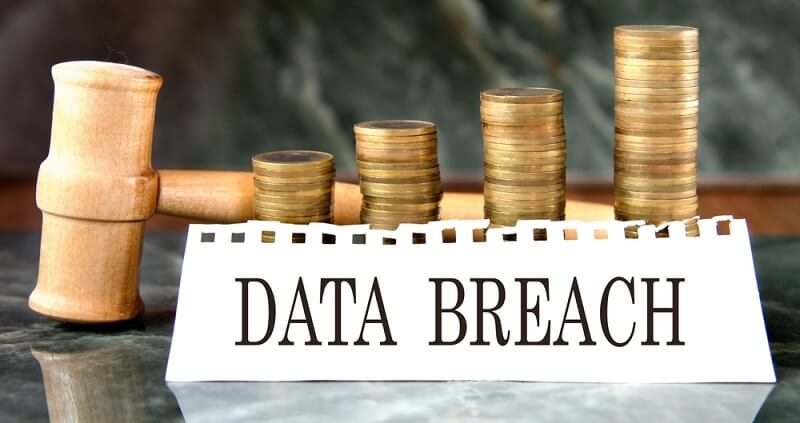Financial And Commercial Insurance For Your Business Needs
Financial And Commercial Insurance For Your Business Needs


Financial insurance is a form of insurance coverage that many businesses obtain. It protects them from damages caused by a contract partner failing to satisfy their responsibilities. It can also cover various commercial losses, such as theft or non-payment, illegal worker practices, and cybercrime, and is known as commercial or business insurance. They differ based on the kind of your business you operate.
An entrepreneur exposes himself to significant dangers the moment he begins a firm. A business is at risk even before the first employee is employed, making it critical to have the appropriate insurance. A single lawsuit or catastrophic occurrence might be enough to destroy a small firm before it even gets off the ground. Fortunately, companies may protect themselves against these risks by choosing from various insurance options. Here are several forms of insurance that every business should get as soon as feasible.
Financial Insurance
Financial insurance can cushion the blow when one party to a contract fails to fulfill their end of the bargain. It can also cushion the blow when one party to a contract experiences unforeseen and significant losses, such as when the value of a stock plummets or when a business partner declares bankruptcy.
Professional liability Insurance
Errors and omissions (E&O) insurance, or professional liability insurance, shields businesses from lawsuits alleging carelessness by employees or contractors. Professional liability insurance policies are not one-size-fits-all. A custom policy will be developed to meet the unique needs of a particular industry.
Employment Practices Liability Insurance (EPLI)
Employment practices liability insurance can be especially useful for small enterprises that employ people. In the event an employee sues you for discrimination, sexual harassment, negligent evaluation, breach of contract, manipulation of employee benefits, or intentional infliction of emotional distress, this insurance will cover your legal expenses.
You may get EPLI from certain insurance companies as an add-on to their BOP, while others sell it as a separate policy. The coverage you select will determine the parameters of your insurance. The expense of EPLI is determined by a variety of criteria, including the nature of your business, the size of your workforce, and the level of risk involved.
Directors and officers (D&O) liability insurance
There should be D&O insurance for any company with a board of directors or an advisory group. If your company's directors or officers are sued personally for negligence on the job, this insurance will shield their personal assets from the financial consequences of such a suit, such as theft of intellectual property, non-compliance with workplace laws, fraud, or misrepresentation of company assets or funds.
Management Liability Insurance
When it comes to protecting private, public, and nonprofit organizations against different board-level liabilities, a comprehensive insurance package known as management liability insurance is the best bet. In order to safeguard themselves against the perils of corporate management, businesses governed by a board of directors would often invest in such coverage.
Employment practices liability, fiduciary responsibility, and directors and officers (D&O) liability coverage are the standard components of a comprehensive management liability insurance policy.
Other Insurance types your business may need
Crop protection insurance
This one is critical to your success if you are in the agriculture industry. You can't control fires, floods, droughts, hail, blight, or crop prices, but you can lower your chances of suffering severe losses. A crop insurance policy should be integrated into your farm management plan to avoid duplicating coverage or creating insurance gaps. There are several private and government crop insurance plans available, but they must be used in tandem to provide complete coverage.
Your agent or broker can identify products to protect you against natural disasters and lost revenue due to poor yields or market price changes by combining government and private coverage.
Property protection insurance
Whether a business owns or rents its location, it must have property insurance. This insurance covers equipment, signs, inventory, and furnishings in case of a fire, storm, or theft. On the other hand, floods and earthquakes are often not covered by ordinary property insurance plans. If your neighborhood is prone to these problems, contact your insurance for separate coverage.
Workers' compensation Insurance
Whenever a firm hires its first employee, it needs to update its insurance policy to include workers' compensation coverage. This will cover medical care, disability, and death benefits if an employee is injured or dies while working for that company. Slip-and-fall injuries or medical issues such as carpal tunnel syndrome might result in a costly claim even if employees appear to be performing low-risk employment.
Home-based enterprises
Many professionals start their small enterprises from home. Unfortunately, home-based enterprises are not covered by homeowners' policies in the same way that commercial property insurance is. If you run your business from home, get supplemental insurance to protect your equipment and goods in the case of a catastrophe.
Insurance for product liability
If your business manufactures products for consumer use, you must get product liability insurance. A product liability lawsuit may happen to any business, no matter how much care it takes to ensure its wares are risk-free. To avoid this risk, companies should have product liability insurance, which protects against lawsuits related to defective goods.
Vehicle protection insurance
Insuring workplace vehicles effectively protect businesses against lawsuits filed by injured drivers and their families. Companies should insure against third-party injuries at the absolute least. Still, comprehensive insurance will also cover that vehicle in an accident.
Agricultural Liability Insurance
Farming is risky because farmers frequently use heavy machinery, work with chemicals, and may encounter unexpected animals. Farm liability insurance protects you from claims resulting from injuries or property damage to others.
Advice on Choosing Financial Insurance
Add up your assets. You must understand precisely what your insurance must cover.
Consider your options. Every firm has its own set of hazards. A jet ski rental firm has quite different risks than a dog groomer, yet both might can face legal issues if something goes wrong - and both have a lot to lose from theft or natural disaster.
Think about your obligations. Professional services are exposed to several sorts of risks. When you supply these services, you are expected to be an expert. That implies that even honest mistakes or bad advice can land you in legal and financial problems. You must understand your duties and have proper liability coverage for them.
Contrast coverage with cost. Money is usually a significant factor. Getting the bare minimum of coverage is tempting to save money on premiums, but this is a considerable risk for small businesses. It's worthwhile to check comprehensive plans, supplementary coverage, and add-on features to discover what makes sense for your specific situation. Double coverage seldom costs twice as much as single coverage, so it's worth considering.
Choosing a mix of insurance types
No single insurance type will fit every business's demands; instead, you will require a mix of business insurance policies based on your location, organization, and industry. Each small business owner should examine their individual demands and responsibilities to choose the optimal combination to safeguard their company.
Consider what liabilities or difficulties keep you awake at night, and then meet with a credible, knowledgeable insurance broker to discuss a strategy to cover those, as well as [their] evaluation of any extra coverages you may require.
After determining the sort of coverage you require, select an insurance plan that is comprehensive (or simple) enough to match your related risk and responsibility. Pricing should not be the only motivator for purchasing insurance goods.
Conclusion
A firm can prevent a significant financial loss due to a lawsuit or a catastrophic incident by having the proper insurance in place. Connect with your insurer to see what types of insurance are recommended for your business, and implement those plans as quickly as feasible. Insuranceandleisure.com gives the most up-to-date information on insurance kinds so that you can safeguard your business. Continue reading our blog to learn more about insurance and other topics.
This content was created by AI



